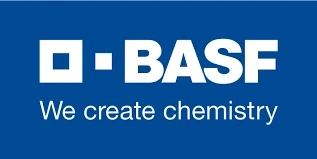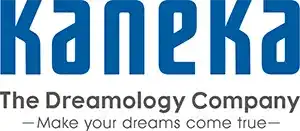Report Details
Not found what are you looking for

Consumer Goods
Global Household Blender Market Research Report 2022(Status and Outlook)
By Type : Market Segmentation (by Type), Countertop Blender, Portable Blender, Hand Blend
By Application : Market Segmentation (by Application), Offline, Online
Description
ToC
Tables & Figures
Companies
Speak with Analyst
Report Overview:
A blender is a kitchen appliance used to prep various foods, typically blending them together to create a liquid substance. This makes them especially useful for making soups and drinks such as individual smoothies, milkshakes, and even cocktails. Also, some of the best blenders can offer addition prepping features such as creating nut milk or being used as a grain mill.
The Global Household Blender Market Size was estimated at USD 1913.40 million in 2021 and is projected to reach USD 3195.10 million by 2028, exhibiting a CAGR of 7.60% during the forecast period.
The latest report provides a deep insight into the global Household Blender market covering all its essential aspects. This ranges from a macro overview of the market to micro details of the market size, competitive landscape, development trend, niche market, key market drivers and challenges, SWOT analysis, Porter’s five forces analysis, value chain analysis, etc.
The analysis helps reader to shape the competition within the industries and strategies for the competitive environment in order to enhance the potential profit. Furthermore, it provides a simple framework for evaluating and accessing the position of the business organization. The report structure also focuses on the competitive landscape of the Global Household Blender Market, this report introduces in detail the market share, market performance, product situation, operation situation, etc. of the main players, which helps the readers in the industry to identify the main competitors and deeply understand the competition pattern of the market.
In a word, this report is a must-read for industry players, investors, researchers, consultants, business strategists, and all those who have any kind of stake or are planning to foray into the Household Blender market in any manner.
Global Household Blender Market: Market Segmentation Analysis
The research report includes specific segments by region (country), manufacturers, Type, and Application. Market segmentation creates subsets of a market based on product type, end-user or application, Geographic, and other factors. By understanding the market segments, the decision-maker can leverage this targeting in product, sales, and marketing strategies. Market segments can power your product development cycles by informing how you create product offerings for different segments.
Key Company
•Blendtec
•Vitamix
•Joyoung
•SUPOR
•Midea
•AUX
•WMF Professional
•Philips
•KitchenAid
•Oster
•Capital Brands
•Hamilton Beach
•Cuisinart
•Breville
•Ninja Blender
•Westinghouse
Market Segmentation (by Type)
•Countertop Blender
•Portable Blender
•Hand Blender
Market Segmentation (by Application)
•Offline
•Online
Geographic Segmentation
• North America (USA, Canada, Mexico)
• Europe (Germany, UK, France, Russia, Italy, Rest of Europe)
• Asia-Pacific (China, Japan, South Korea, India, Southeast Asia, Rest of Asia-Pacific)
• South America (Brazil, Argentina, Columbia, Rest of South America)
• The Middle East and Africa (Saudi Arabia, UAE, Egypt, Nigeria, South Africa, Rest of MEA)
Key Benefits of This Market Research:
• Industry drivers, restraints, and opportunities covered in the study
• Neutral perspective on the market performance
• Recent industry trends and developments
• Competitive landscape & strategies of key players
• Potential & niche segments and regions exhibiting promising growth covered
• Historical, current, and projected market size, in terms of value
• In-depth analysis of the Household Blender Market
• Overview of the regional outlook of the Household Blender Market:
Key Reasons to Buy this Report:
• Access to date statistics compiled by our researchers. These provide you with historical and forecast data, which is analyzed to tell you why your market is set to change
• This enables you to anticipate market changes to remain ahead of your competitors
• You will be able to copy data from the Excel spreadsheet straight into your marketing plans, business presentations, or other strategic documents
• The concise analysis, clear graph, and table format will enable you to pinpoint the information you require quickly
• Provision of market value (USD Billion) data for each segment and sub-segment
• Indicates the region and segment that is expected to witness the fastest growth as well as to dominate the market
• Analysis by geography highlighting the consumption of the product/service in the region as well as indicating the factors that are affecting the market within each region
• Competitive landscape which incorporates the market ranking of the major players, along with new service/product launches, partnerships, business expansions, and acquisitions in the past five years of companies profiled
• Extensive company profiles comprising of company overview, company insights, product benchmarking, and SWOT analysis for the major market players
• The current as well as the future market outlook of the industry concerning recent developments which involve growth opportunities and drivers as well as challenges and restraints of both emerging as well as developed regions
• Includes in-depth analysis of the market from various perspectives through Porter’s five forces analysis
• Provides insight into the market through Value Chain
• Market dynamics scenario, along with growth opportunities of the market in the years to come
• 6-month post-sales analyst support
Customization of the Report
In case of any queries or customization requirements, please connect with our sales team, who will ensure that your requirements are met.
Chapter Outline:
Chapter 1 mainly introduces the statistical scope of the report, market division standards, and market research methods.
Chapter 2 is an executive summary of different market segments (by region, product type, application, etc), including the market size of each market segment, future development potential, and so on. It offers a high-level view of the current state of the Household Blender Market and its likely evolution in the short to mid-term, and long term.
Chapter 3 makes a detailed analysis of the Market's Competitive Landscape of the market and provides the market share, capacity, output, price, latest development plan, merger, and acquisition information of the main manufacturers in the market.
Chapter 4 is the analysis of the whole market industrial chain, including the upstream and downstream of the industry, as well as Porter's five forces analysis.
Chapter 5 introduces the latest developments of the market, the driving factors and restrictive factors of the market, the challenges and risks faced by manufacturers in the industry, and the analysis of relevant policies in the industry.
Chapter 6 provides the analysis of various market segments according to product types, covering the market size and development potential of each market segment, to help readers find the blue ocean market in different market segments.
Chapter 7 provides the analysis of various market segments according to application, covering the market size and development potential of each market segment, to help readers find the blue ocean market in different downstream markets.
Chapter 8 provides a quantitative analysis of the market size and development potential of each region and its main countries and introduces the market development, future development prospects, market space, and capacity of each country in the world.
Chapter 9 introduces the basic situation of the main companies in the market in detail, including product sales revenue, sales volume, price, gross profit margin, market share, product introduction, recent development, etc.
Chapter 10 provides a quantitative analysis of the market size and development potential of each region in the next five years.
Chapter 11 provides a quantitative analysis of the market size and development potential of each market segment (product type and application) in the next five years.
Chapter 12 is the main points and conclusions of the report.
FAQ
- You should buy this report from Xcellent Insights for a better clarity on market scenarios.
- The market report has been prepared using a pragmatic approach to suit your needs.
- We have an extensive library of reports that can help you understand the market landscape and make informed decisions about your business.
- Additionally, the reports are written by experienced analysts who have a deep understanding of the market and the latest trends.
- Besides, customization is a value-added service if you decide to opt.
TABLE OF CONTENTS
1 Research Methodology and Statistical Scope
1.1 Market Definition and Statistical Scope of Household Blender
1.2 Key Market Segments
1.2.1 Household Blender Segment by Type
1.2.2 Household Blender Segment by Application
1.3 Methodology & Sources of Information
1.3.1 Research Methodology
1.3.2 Research Process
1.3.3 Market Breakdown and Data Triangulation
1.3.4 Base Year
1.3.5 Report Assumptions & Caveats
2 Household Blender Market Overview
2.1 Global Market Overview
2.1.1 Global Household Blender Market Size (M USD) Estimates and Forecasts (2017-2028)
2.1.2 Global Household Blender Sales Estimates and Forecasts (2017-2028)
2.2 Market Segment Executive Summary
2.3 Global Market Size by Region
3 Household Blender Market Competitive Landscape
3.1 Global Household Blender Sales by Manufacturers (2017-2022)
3.2 Global Household Blender Revenue Market Share by Manufacturers (2017-2022)
3.3 Household Blender Market Share by Company Type (Tier 1, Tier 2, and Tier 3)
3.4 Global Household Blender Average Price by Manufacturers (2017-2022)
3.5 Manufacturers Household Blender Sales Sites, Area Served, Product Type
3.6 Household Blender Market Competitive Situation and Trends
3.6.1 Household Blender Market Concentration Rate
3.6.2 Global 5 and 10 Largest Household Blender Players Market Share by Revenue
3.6.3 Mergers & Acquisitions, Expansion
4 Household Blender Industry Chain Analysis
4.1 Household Blender Industry Chain Analysis
4.2 Market Overview and Market Concentration Analysis of Key Raw Materials
4.3 Midstream Market Analysis
4.4 Downstream Customer Analysis
5 The Development and Dynamics of Household Blender Market
5.1 Key Development Trends
5.2 Driving Factors
5.3 Market Challenges
5.4 Market Restraints
5.5 Industry News
5.5.1 New Product Developments
5.5.2 Mergers & Acquisitions
5.5.3 Expansions
5.5.4 Collaboration/Supply Contracts
5.6 Industry Policies
6 Household Blender Market Segmentation by Type
6.1 Evaluation Matrix of Segment Market Development Potential (Type)
6.2 Global Household Blender Sales Market Share by Type (2017-2022)
6.3 Global Household Blender Market Size Market Share by Type (2017-2022)
6.4 Global Household Blender Price by Type (2017-2022)
7 Household Blender Market Segmentation by Application
7.1 Evaluation Matrix of Segment Market Development Potential (Application)
7.2 Global Household Blender Market Sales by Application (2017-2022)
7.3 Global Household Blender Market Size (M USD) by Application (2017-2022)
7.4 Global Household Blender Sales Growth Rate by Application (2017-2022)
8 Household Blender Market Segmentation by Region
8.1 Global Household Blender Sales by Region
8.1.1 Global Household Blender Sales by Region
8.1.2 Global Household Blender Sales Market Share by Region
8.2 North America
8.2.1 North America Household Blender Sales by Country
8.2.2 U.S.
8.2.3 Canada
8.2.4 Mexico
8.3 Europe
8.3.1 Europe Household Blender Sales by Country
8.3.2 Germany
8.3.3 France
8.3.4 U.K.
8.3.5 Italy
8.3.6 Russia
8.4 Asia Pacific
8.4.1 Asia Pacific Household Blender Sales by Region
8.4.2 China
8.4.3 Japan
8.4.4 South Korea
8.4.5 India
8.4.6 Southeast Asia
8.5 South America
8.5.1 South America Household Blender Sales by Country
8.5.2 Brazil
8.5.3 Argentina
8.5.4 Columbia
8.6 Middle East and Africa
8.6.1 Middle East and Africa Household Blender Sales by Region
8.6.2 Saudi Arabia
8.6.3 UAE
8.6.4 Egypt
8.6.5 Nigeria
8.6.6 South Africa
9 Key Companies Profiled
9.1 Blendtec
9.1.1 Blendtec Household Blender Basic Information
9.1.2 Blendtec Household Blender Product Overview
9.1.3 Blendtec Household Blender Product Market Performance
9.1.4 Blendtec Business Overview
9.1.5 Blendtec Household Blender SWOT Analysis
9.1.6 Blendtec Recent Developments
9.2 Vitamix
9.2.1 Vitamix Household Blender Basic Information
9.2.2 Vitamix Household Blender Product Overview
9.2.3 Vitamix Household Blender Product Market Performance
9.2.4 Vitamix Business Overview
9.2.5 Vitamix Household Blender SWOT Analysis
9.2.6 Vitamix Recent Developments
9.3 Joyoung
9.3.1 Joyoung Household Blender Basic Information
9.3.2 Joyoung Household Blender Product Overview
9.3.3 Joyoung Household Blender Product Market Performance
9.3.4 Joyoung Business Overview
9.3.5 Joyoung Household Blender SWOT Analysis
9.3.6 Joyoung Recent Developments
9.4 SUPOR
9.4.1 SUPOR Household Blender Basic Information
9.4.2 SUPOR Household Blender Product Overview
9.4.3 SUPOR Household Blender Product Market Performance
9.4.4 SUPOR Business Overview
9.4.5 SUPOR Household Blender SWOT Analysis
9.4.6 SUPOR Recent Developments
9.5 Midea
9.5.1 Midea Household Blender Basic Information
9.5.2 Midea Household Blender Product Overview
9.5.3 Midea Household Blender Product Market Performance
9.5.4 Midea Business Overview
9.5.5 Midea Household Blender SWOT Analysis
9.5.6 Midea Recent Developments
9.6 AUX
9.6.1 AUX Household Blender Basic Information
9.6.2 AUX Household Blender Product Overview
9.6.3 AUX Household Blender Product Market Performance
9.6.4 AUX Business Overview
9.6.5 AUX Recent Developments
9.7 WMF Professional
9.7.1 WMF Professional Household Blender Basic Information
9.7.2 WMF Professional Household Blender Product Overview
9.7.3 WMF Professional Household Blender Product Market Performance
9.7.4 WMF Professional Business Overview
9.7.5 WMF Professional Recent Developments
9.8 Philips
9.8.1 Philips Household Blender Basic Information
9.8.2 Philips Household Blender Product Overview
9.8.3 Philips Household Blender Product Market Performance
9.8.4 Philips Business Overview
9.8.5 Philips Recent Developments
9.9 KitchenAid
9.9.1 KitchenAid Household Blender Basic Information
9.9.2 KitchenAid Household Blender Product Overview
9.9.3 KitchenAid Household Blender Product Market Performance
9.9.4 KitchenAid Business Overview
9.9.5 KitchenAid Recent Developments
9.10 Oster
9.10.1 Oster Household Blender Basic Information
9.10.2 Oster Household Blender Product Overview
9.10.3 Oster Household Blender Product Market Performance
9.10.4 Oster Business Overview
9.10.5 Oster Recent Developments
9.11 Capital Brands
9.11.1 Capital Brands Household Blender Basic Information
9.11.2 Capital Brands Household Blender Product Overview
9.11.3 Capital Brands Household Blender Product Market Performance
9.11.4 Capital Brands Business Overview
9.11.5 Capital Brands Recent Developments
9.12 Hamilton Beach
9.12.1 Hamilton Beach Household Blender Basic Information
9.12.2 Hamilton Beach Household Blender Product Overview
9.12.3 Hamilton Beach Household Blender Product Market Performance
9.12.4 Hamilton Beach Business Overview
9.12.5 Hamilton Beach Recent Developments
9.13 Cuisinart
9.13.1 Cuisinart Household Blender Basic Information
9.13.2 Cuisinart Household Blender Product Overview
9.13.3 Cuisinart Household Blender Product Market Performance
9.13.4 Cuisinart Business Overview
9.13.5 Cuisinart Recent Developments
9.14 Breville
9.14.1 Breville Household Blender Basic Information
9.14.2 Breville Household Blender Product Overview
9.14.3 Breville Household Blender Product Market Performance
9.14.4 Breville Business Overview
9.14.5 Breville Recent Developments
9.15 Ninja Blender
9.15.1 Ninja Blender Household Blender Basic Information
9.15.2 Ninja Blender Household Blender Product Overview
9.15.3 Ninja Blender Household Blender Product Market Performance
9.15.4 Ninja Blender Business Overview
9.15.5 Ninja Blender Recent Developments
9.16 Westinghouse
9.16.1 Westinghouse Household Blender Basic Information
9.16.2 Westinghouse Household Blender Product Overview
9.16.3 Westinghouse Household Blender Product Market Performance
9.16.4 Westinghouse Business Overview
9.16.5 Westinghouse Recent Developments
10 Household Blender Market Forecast by Region
10.1 Global Household Blender Market Size Forecast
10.2 Global Household Blender Market Forecast by Region
10.2.1 North America Market Size Forecast by Country
10.2.2 Europe Household Blender Market Size Forecast by Country
10.2.3 Asia Pacific Household Blender Market Size Forecast by Region
10.2.4 South America Household Blender Market Size Forecast by Country
10.2.5 Middle East and Africa Forecasted Consumption of Household Blender by Country
11 Forecast Market by Type and by Application (2022-2028)
11.1 Global Household Blender Market Forecast by Type (2022-2028)
11.1.1 Global Forecasted Sales of Household Blender by Type (2022-2028)
11.1.2 Global Household Blender Market Size Forecast by Type (2022-2028)
11.1.3 Global Forecasted Price of Household Blender by Type (2022-2028)
11.2 Global Household Blender Market Forecast by Application (2022-2028)
11.2.1 Global Household Blender Sales (K Units) Forecast by Application
11.2.2 Global Household Blender Market Size (M USD) Forecast by Application (2022-2028)
12 Conclusion and Key Findings
Tables and Figures
Contact Our Sales team for List of Tables & Figures.
Key Players
Blendtec
Vitamix
Joyoung
SUPOR
Midea
AUX
WMF Professional
Philips
KitchenAid
Oster
Capital Brands
Hamilton Beach
Cuisinart
Breville
Ninja Blender
Westinghouse
Why Choose Us
- Extensive Library of Reports.
- Identify the clients' needs.
- Pragmatic Research Approach.
- Clarity on Market Scenarios.
- Tailor-Made Solutions.
- Expert Analysts Team.
- Competitive and Fair Prices.
Clientele













Thank you
Xcellent Insights has received your query!